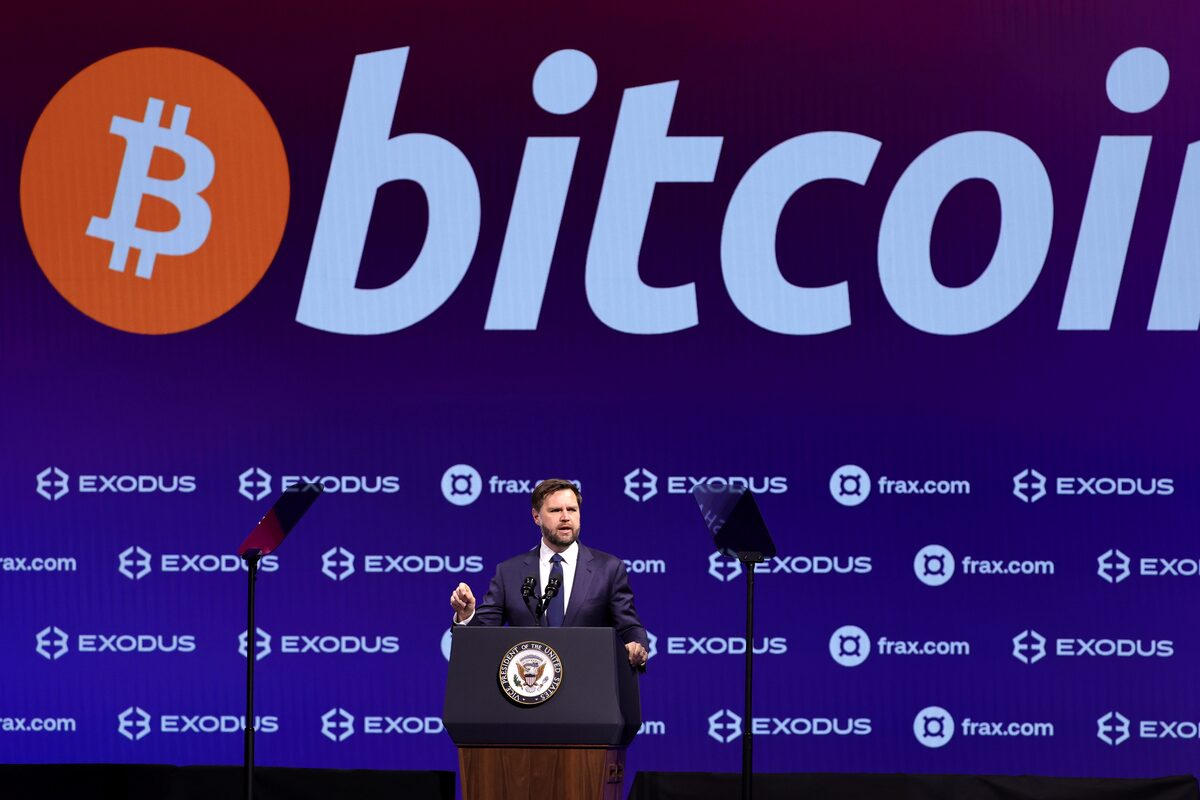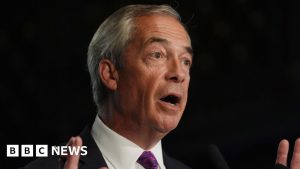JD Vance and the Trump administration have been viewed as largely favourable to the cryptocurrency industry, with investors having made sizable donations to the campaign.Ethan Miller/Getty Images
If you want more evidence of how politics is infecting markets, consider the amazing resurgence of crypto over the past year.
Bitcoin, the granddaddy of the sector, has shot up 50 per cent since last October. Meanwhile, promoters are licking their lips as they contemplate the prospects for a new wave of “stablecoins” – digital tokens that purport to tie their value to that of an underlying asset, such as the U.S. dollar or gold.
What’s driving the new crypto frenzy? It’s not the discovery of some grand new application for crypto. Nor is it a technological breakthrough.
No, it’s politics. The administration of U.S. President Donald Trump and a large bipartisan swath of Congress have suddenly turned into crypto boosters. They’re demolishing restrictions on crypto use and pushing forward crypto-related projects.
Even if you’re not a crypto investor, you should pay attention to this odd outburst of enthusiasm. The bitcoin boom challenges anyone who wants to believe that today’s market is an efficient judge of value. It also undercuts those who want to believe regulators are keeping a close eye on potential abuses.
In a rational world, the appropriate price for bitcoin – an intangible asset that generates no profits, pays no dividends and has no obvious practical utility – would be close to zero. Instead, it’s more than US$100,000.
What makes its lofty value even more baffling is crypto’s long and growing criminal record.
Just over a year ago, Sam Bankman-Fried, founder of the massive FTX crypto exchange, was sentenced to 25 years in jail for fraud.
Around the same time, Canada’s own Changpeng Zhao, former head of crypto trader Binance, paid US$50-million in fines and spent four months in jail for money laundering. Meanwhile, Do Kwon, the South Korean software guru behind the TerraUSD stablecoin and Luna cryptocurrency, vanished after his creations crashed, wiping out billions of dollars in value. He was eventually apprehended and arrested and still faces court cases in multiple jurisdictions.
Opinion: Canada was once a global leader in crypto. It can be one again
Strangely, though, these and other lurid crypto mishaps have vanished from Washington’s official memory.
The U.S. capital’s abrupt shift in sentiment demonstrates the amazing moral elasticity of the new administration.
Mr. Trump, who once denounced crypto as a “scam,” is now vowing to make the United States the “crypto capital of the world.” He has issued his own personal meme coin – the term for a deliberately useless token, often created with a satirical intent – and has raised more than US$300-million from sales of it, according to a Washington Post analysis.
FTX founder Sam Bankman-Fried was sentenced to 25 years in jail for fraud in one of crypto’s most well-known mishaps.Mary Altaffer/The Associated Press
The President is shameless in his promotion of his coin as demonstrated by the private dinner he recently held to reward the biggest buyers of his token. Some might ask if such events amount to selling presidential access to the highest bidder. Others might worry that Mr. Trump is opening the door to outright bribes laundered through purchases of his personal meme coin.
In the wonderful world of Washington crypto, though, nobody seems too fussed by such ethical questions. Conflicts of interest are the new norm.
Consider this week’s events. On Tuesday, Mr. Trump’s social media company, Trump Media and Technology Group, announced it was raising US$2.5-billion to invest in bitcoin. A day later, the U.S. Department of Labor rescinded its guidance that had previously discouraged retirement plans from offering crypto as a potential investment to their members.
This might be a coincidence. Or not. Either way, it looks horrible.
So does the extravagantly named GENIUS Act, now advancing rapidly through Congress with bipartisan support. It aims to legitimize stablecoins.
These digital tokens attempt to address one common criticism of crypto – the fact that bitcoin and its ilk can fluctuate wildly in value. Stablecoins, as the name suggests, claim they can stabilize the value of their tokens. How? By backing them with reserves of U.S. Treasuries and other low-risk assets.
It’s an intriguing notion, but it raises loads of questions. Who will ensure stablecoins have the reserves they claim? What happens if a stablecoin develops problems and fails?
In many ways, stablecoins look like quasi-banks, but with few of the rules that normally protect bank depositors. Critics say they will increase the fragility of the financial system.
Perhaps the fundamental question here is simply, why? Stablecoins solve no obvious problem. Everything they claim to do can be done already through banks and credit cards. It’s hard to understand what value can be generated from creating a digital middleman to hold government bonds for you.
To be sure, you can make similar points about crypto more generally. More than 15 years after bitcoin first appeared, it is still searching for a practical application. The blockchain concept it relies upon is too clunky and slow for day-to-day use in stores or banks. And the same is true of other digital tokens despite endless tinkering and extravagant claims.
Crypto shines in just two areas: enabling criminal activity and offering people a vehicle for pure fact-free speculation. So why is Washington suddenly so enthusiastic about it? Perhaps because the crypto industry accounted for nearly half of all the corporate money that flowed into the U.S. election last year, according to non-profit group Public Citizen. The generous donations appear to have bought the industry a bumper crop of new converts.









